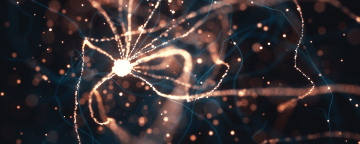Ashley Yeager in The Scientist:
 In the spring of 2019, neuroscientist Heather Cameron set up a simple experiment. She and her colleagues put an adult rat in the middle of a plastic box with a water bottle at one end. They waited until the rat started drinking and then made a startling noise to see how the animal would respond. The team did this repeatedly with regular rats and with animals that were genetically altered so that they couldn’t make new neurons in their hippocampuses, a brain region involved in learning and memory. When the animals heard the noise, those that could make new hippocampal neurons immediately stopped slurping water and looked around, but the animals lacking hippocampal neurogenesis kept drinking. When the team ran the experiment without the water bottle, both sets of rats looked around right away to figure out where the sound was coming from. Rats that couldn’t make new neurons seemed to have trouble shifting their attention from one task to another, the researchers concluded.
In the spring of 2019, neuroscientist Heather Cameron set up a simple experiment. She and her colleagues put an adult rat in the middle of a plastic box with a water bottle at one end. They waited until the rat started drinking and then made a startling noise to see how the animal would respond. The team did this repeatedly with regular rats and with animals that were genetically altered so that they couldn’t make new neurons in their hippocampuses, a brain region involved in learning and memory. When the animals heard the noise, those that could make new hippocampal neurons immediately stopped slurping water and looked around, but the animals lacking hippocampal neurogenesis kept drinking. When the team ran the experiment without the water bottle, both sets of rats looked around right away to figure out where the sound was coming from. Rats that couldn’t make new neurons seemed to have trouble shifting their attention from one task to another, the researchers concluded.
…The study joins a growing body of work that challenges the decades-old notion that the primary role of new neurons within the adult hippocampus is in learning and memory. More recently, experiments have tied neurogenesis to forgetting, one possible way to ensure the brain doesn’t become overloaded with information it doesn’t need, and to anxiety, depression, stress, and, as Cameron’s work suggests, attention. Now, neuro-scientists are rethinking the role that new neurons, and the hippocampus as a whole, play in the brain.
More here.
